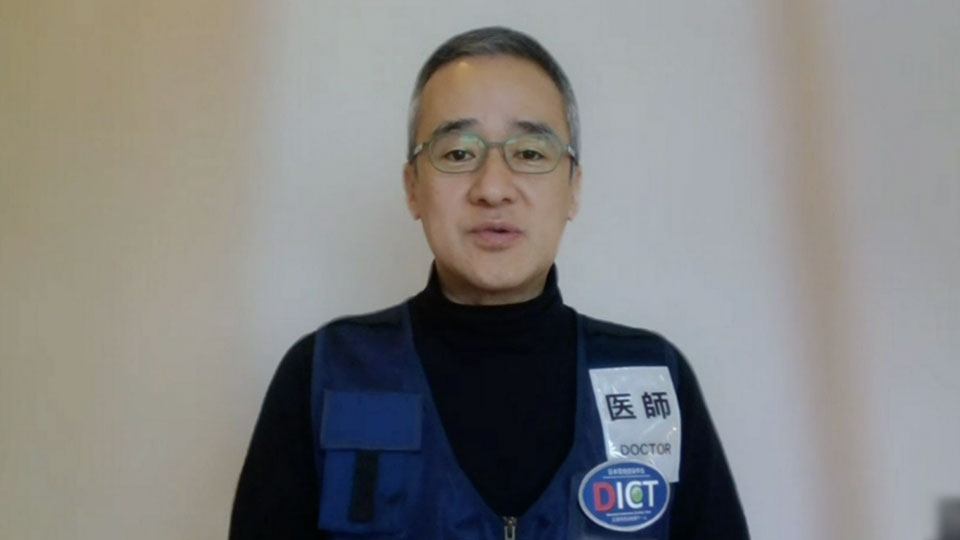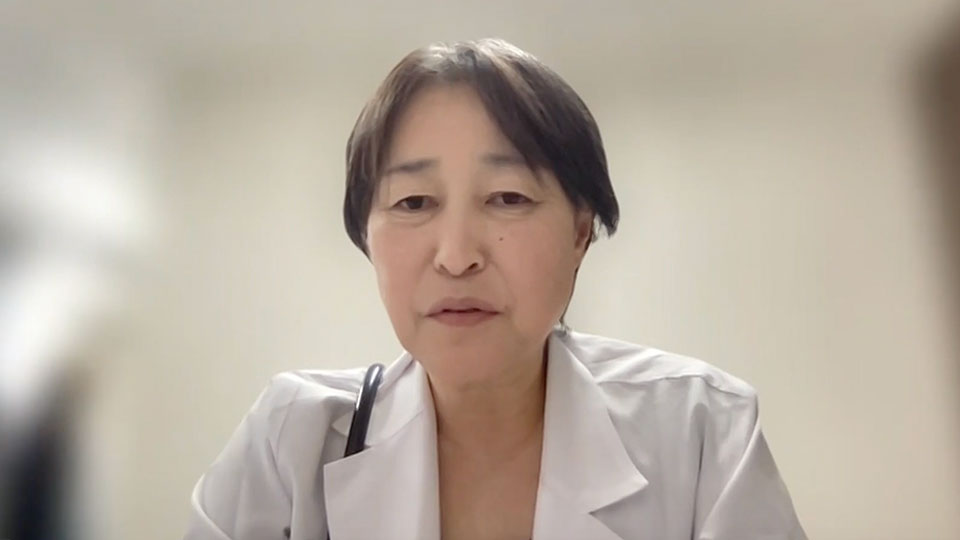The Japanese Society for Infection Prevention and Control has sent its Disaster Infectious Control Team (DICT) to the disaster-hit area to promote anti-infection measures at such evacuation centers.
Professor Izumikawa Koichi of Nagasaki University Hospital's Infection Control and Education Center leads DICT. He says the team's experts are especially concerned about the spread of norovirus.
Izumikawa says, "Our team has visited 78 evacuation centers. We found that many still don't have running water."

The January 1 earthquake caused widespread water disruptions in Ishikawa Prefecture. Many shelters lack running water and sanitary conditions are dire.
Such facilities must take preventative measures against the spread of diseases such as norovirus, coronavirus and influenza, which can be life-threatening for elderly people.
Izumikawa says DICT is especially concerned about norovirus since alcohol sanitizer does not kill it.
Izumikawa says, "Additional precautions are required when handling norovirus patients' vomit and excrement. Normally, we encourage the caretakers of such people to wash their hands with soap and water. But the shelters lack running water.
He's instead suggesting measures that such evacuation centers can take.

He says if running water is unavailable, people should strive to keep their hands clean by thoroughly wiping them off with wet tissue.
Izumikawa also says people suffering from symptoms such as nausea and diarrhea should use separate toilets if possible.
He adds that it's also important to remove shoes when entering shelter living spaces to avoid tracking in viruses and bacteria from toilets and other places.
Izumikawa also recommends the use of face masks and says shelters should provide adequate ventilation.
Negami Masako is a doctor specializing women's health in Ishikawa Prefecture's Nanao City. She's been providing consultations for evacuees.
Negami says it's difficult for women to take adequate hygiene measures at evacuation centers that lack running water, so many are suffering from skin disorders such as genitalia itching.

Negami advises evacuees who can't take baths to instead wipe themselves thoroughly with wet tissues that do not contain alcohol.
She adds that tissues and absorbent cotton moistened with drinking water can also be used if wet tissues aren't available. She also recommends the use of panty liners when underwear can't be regularly changed.
